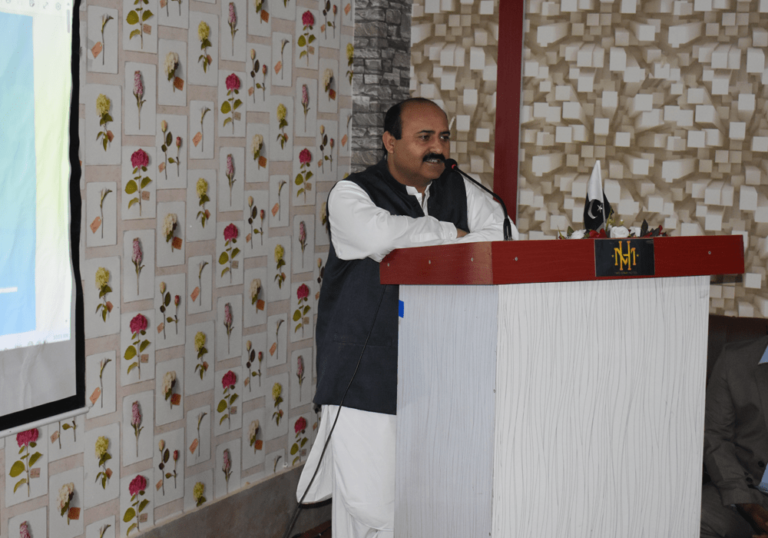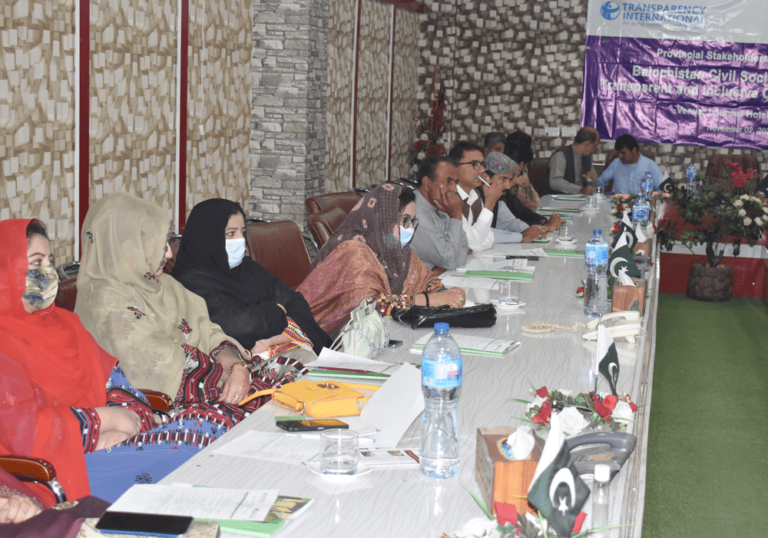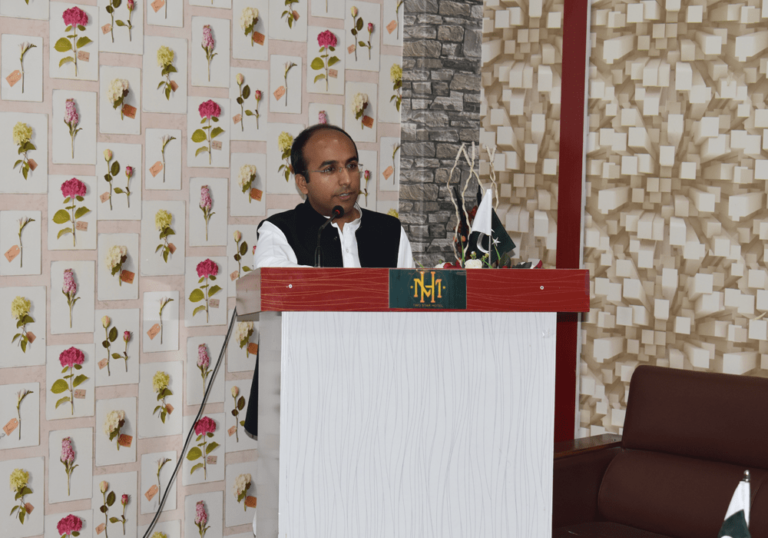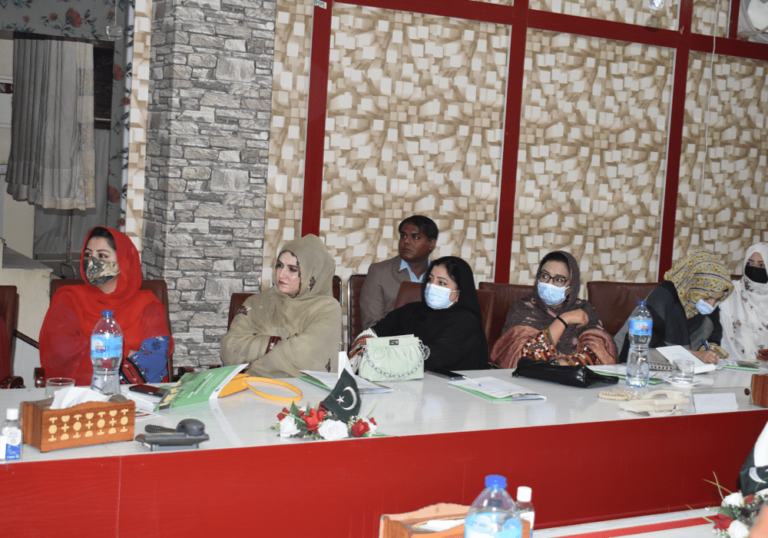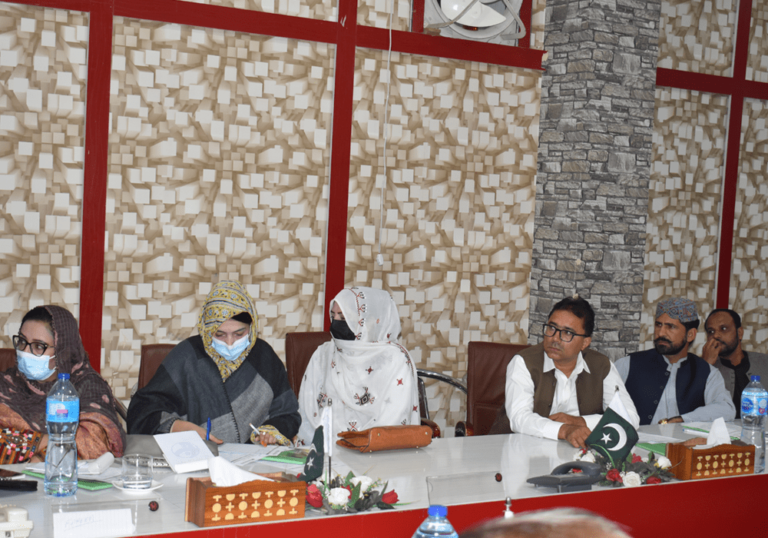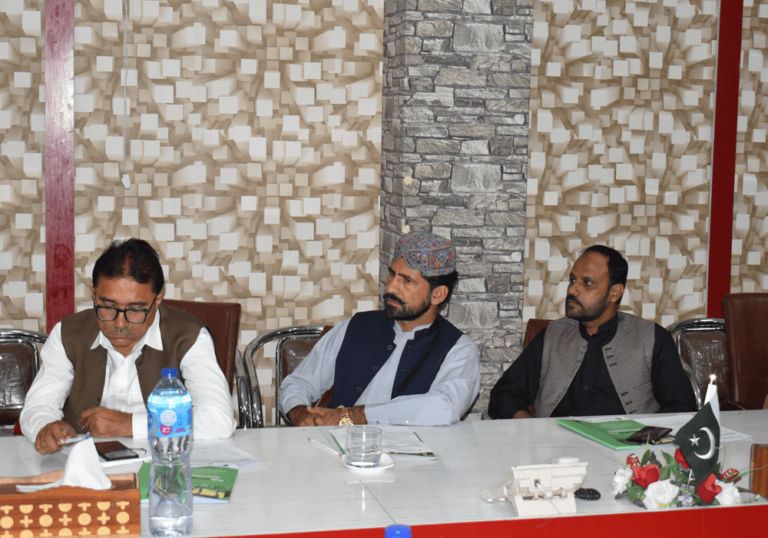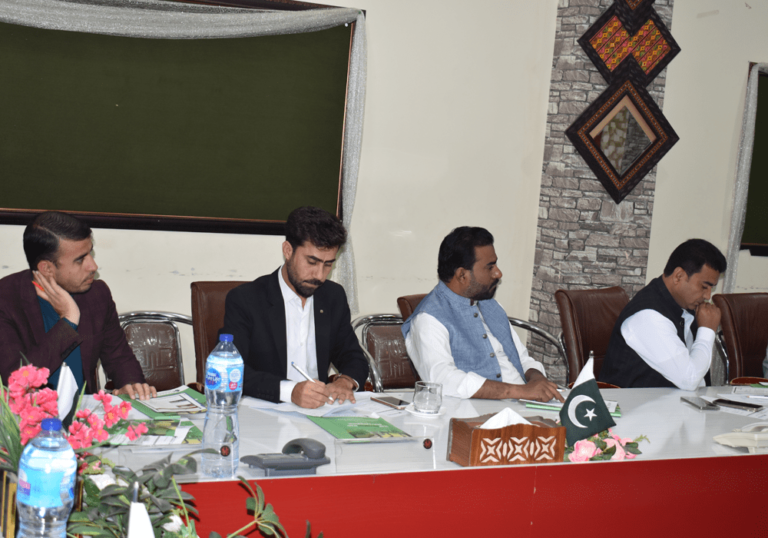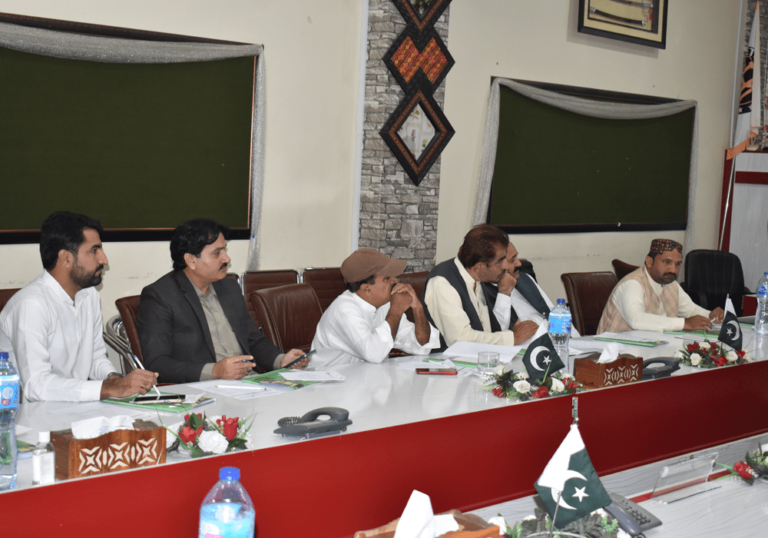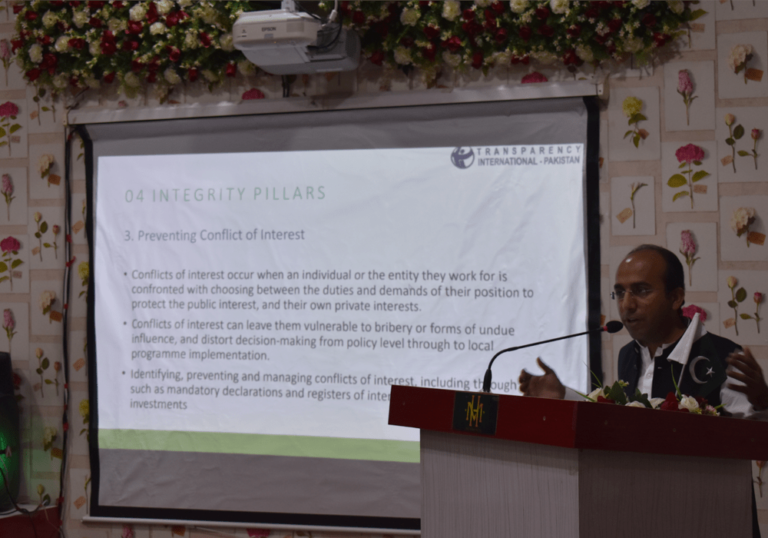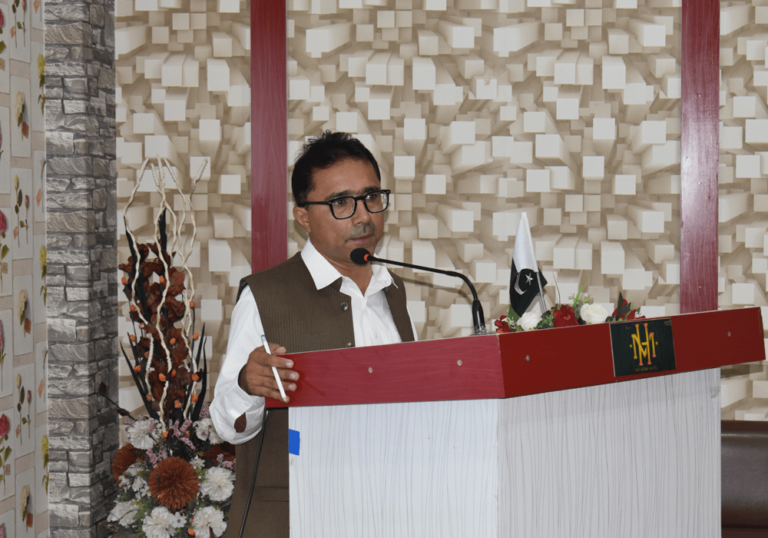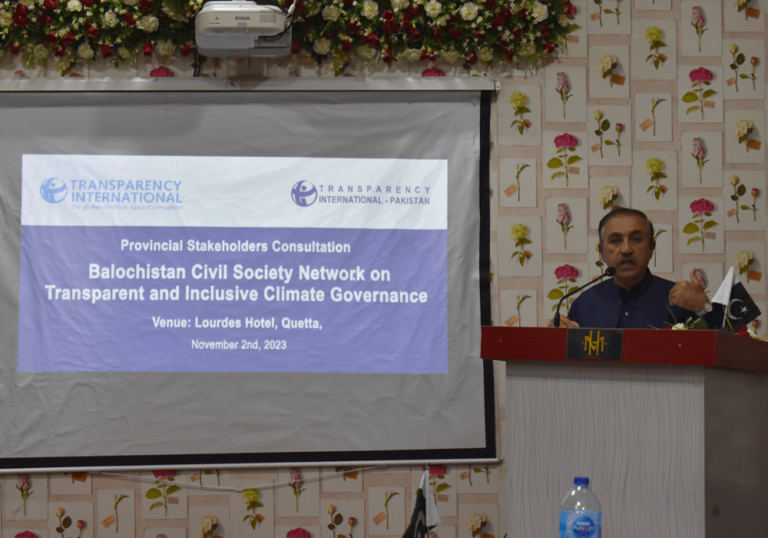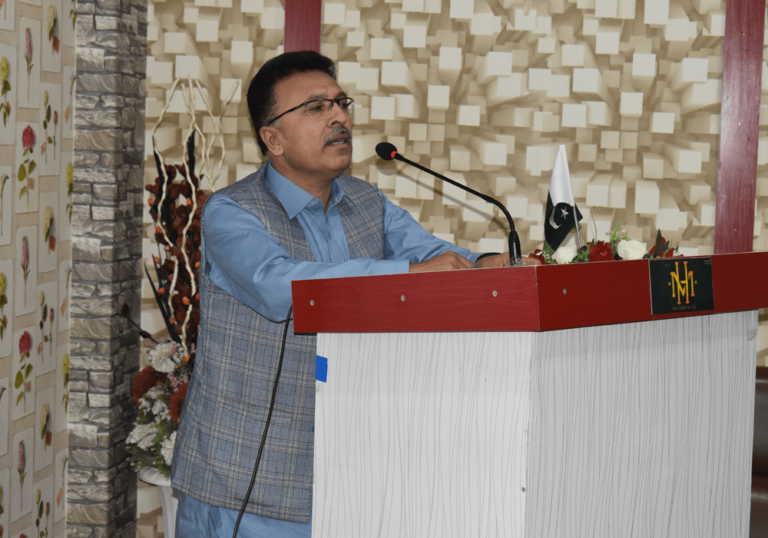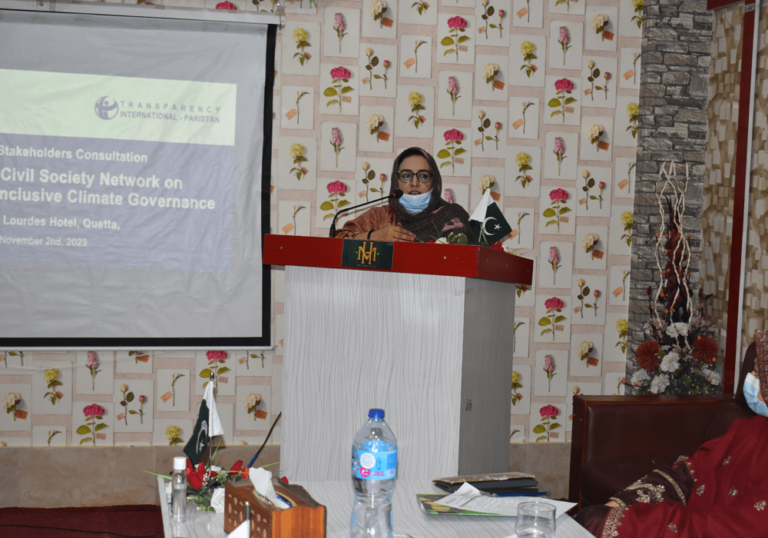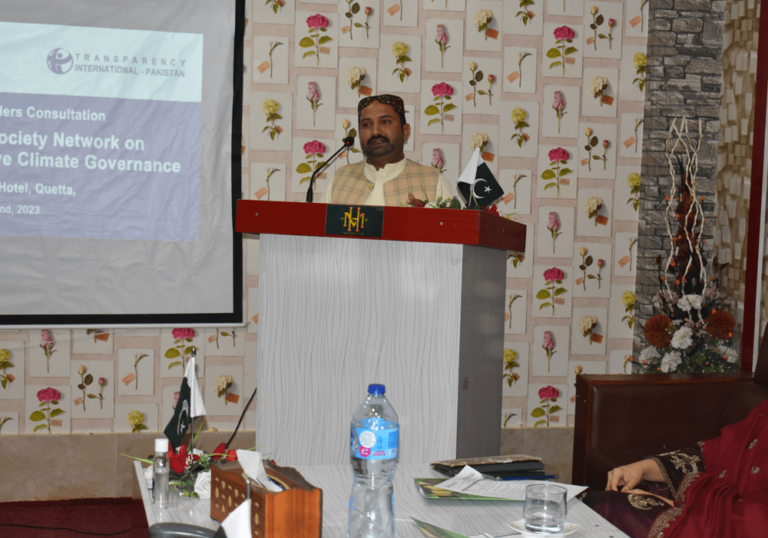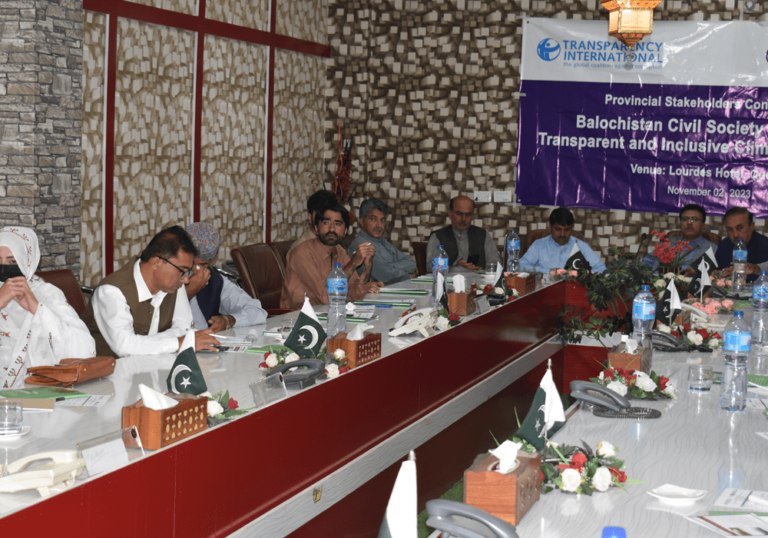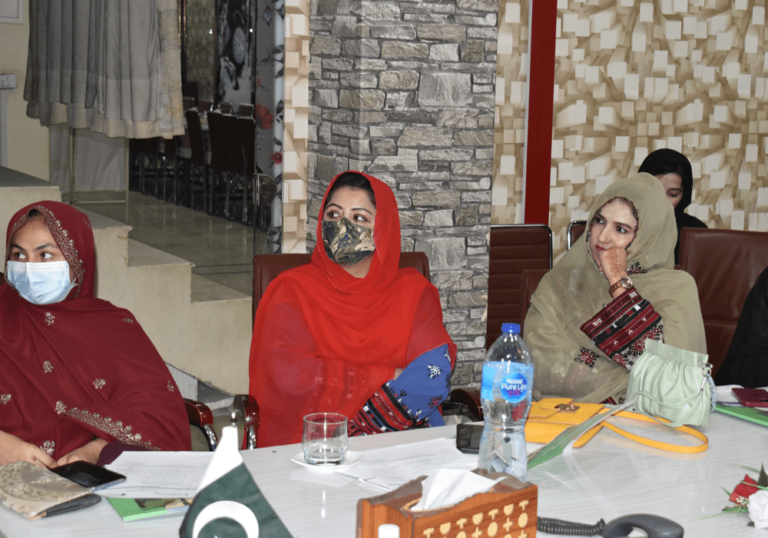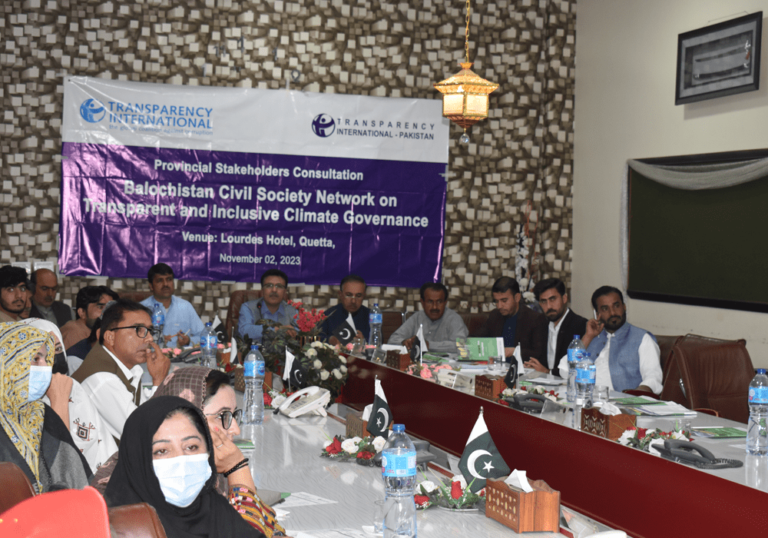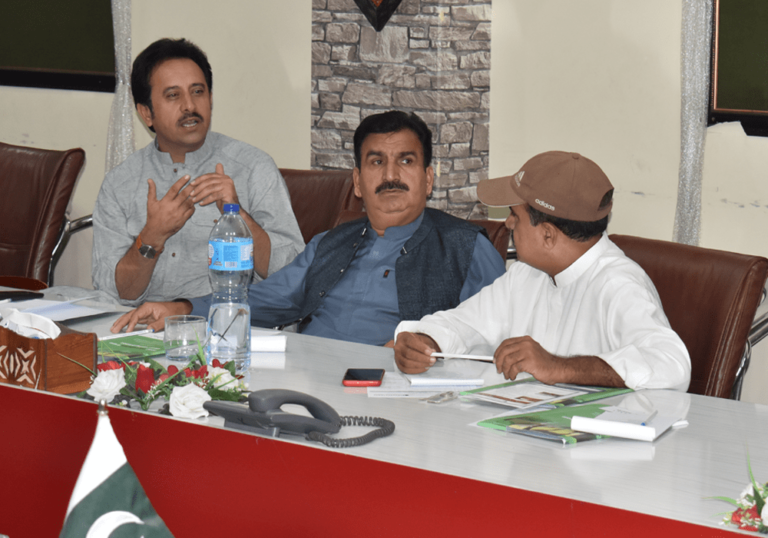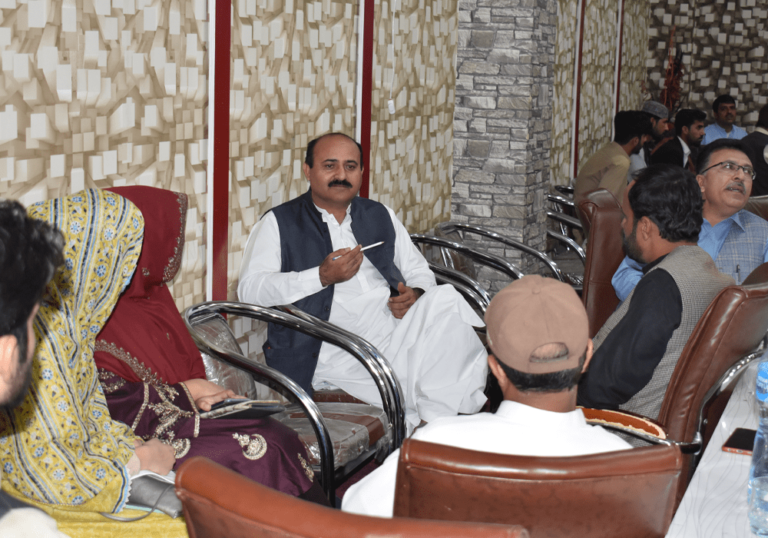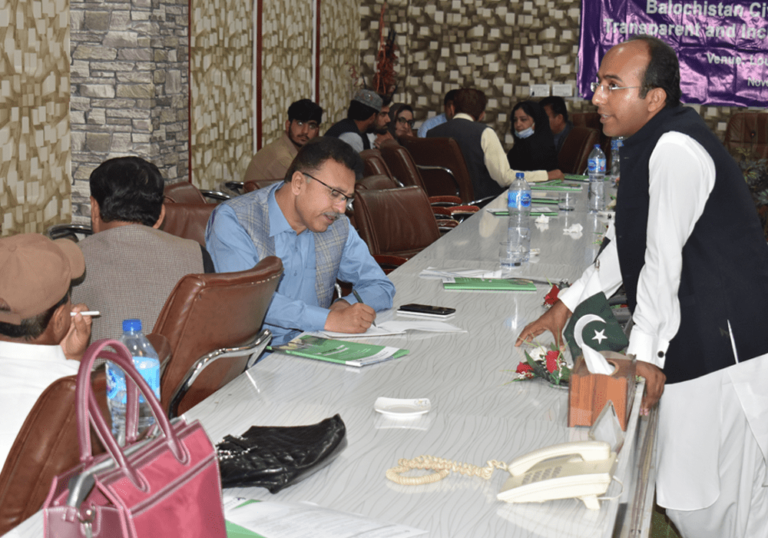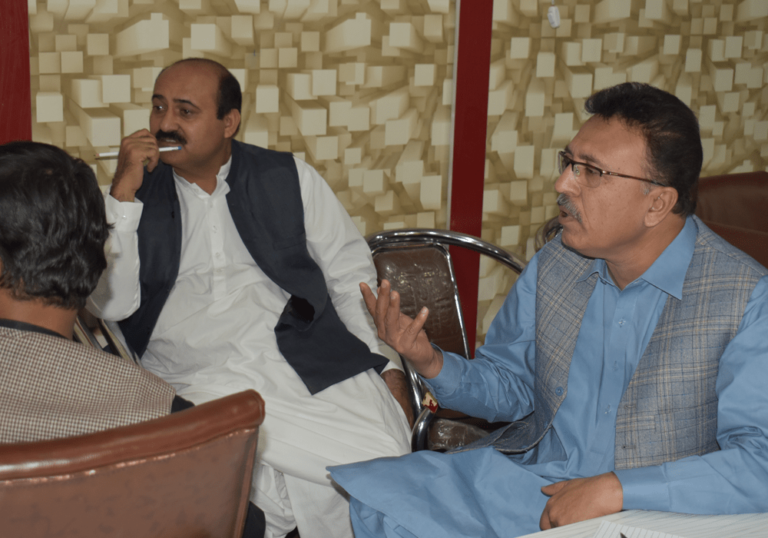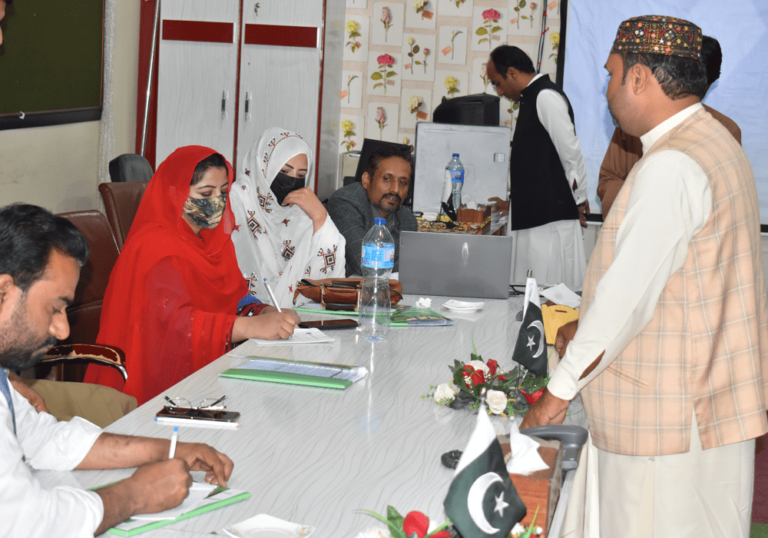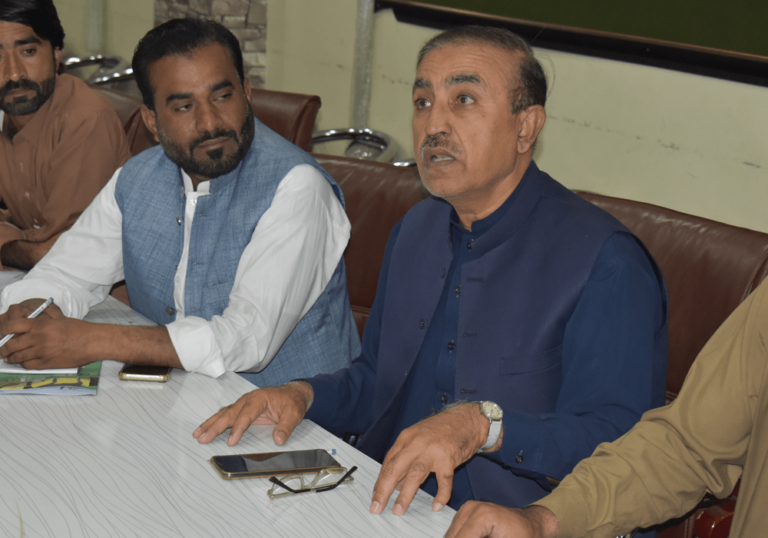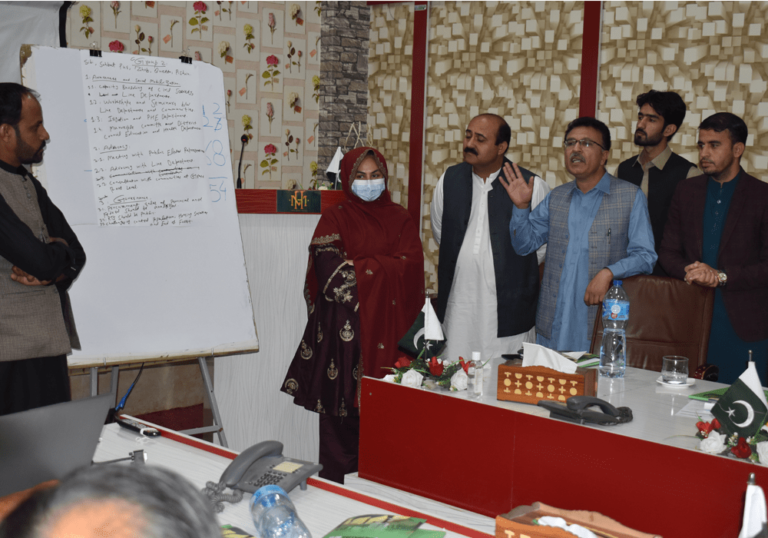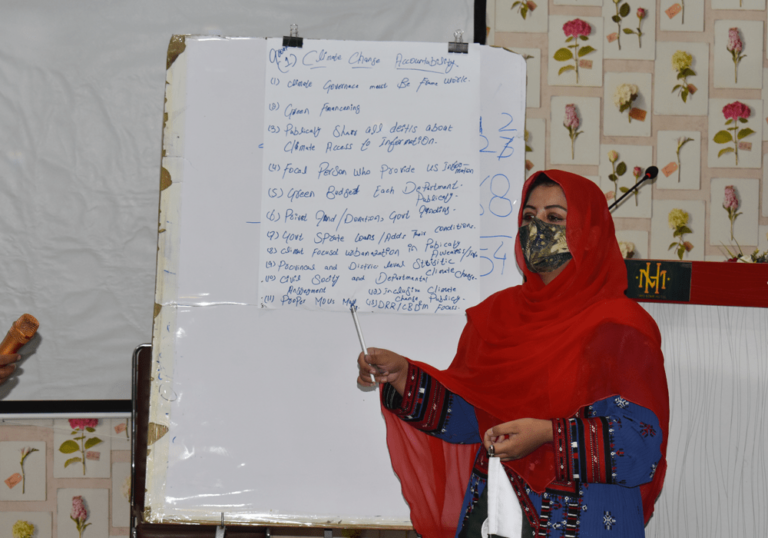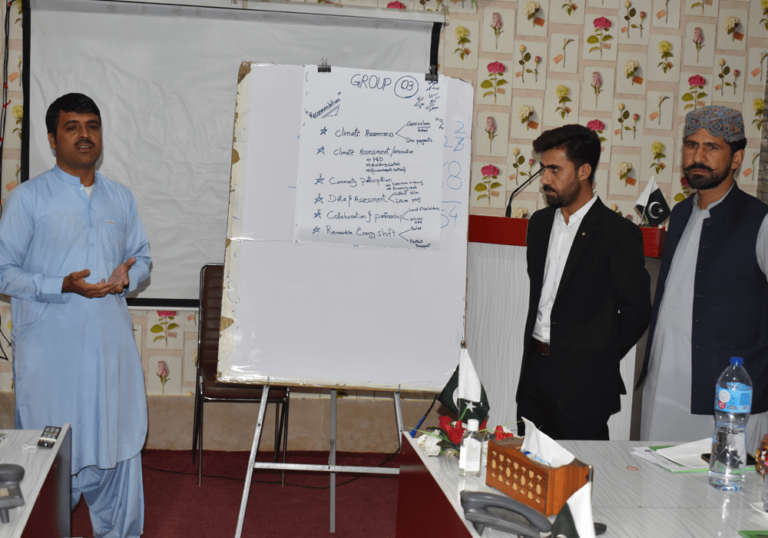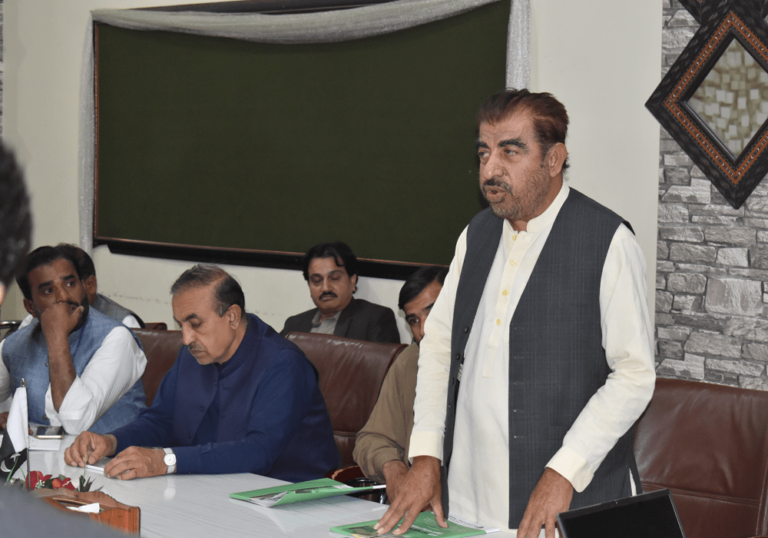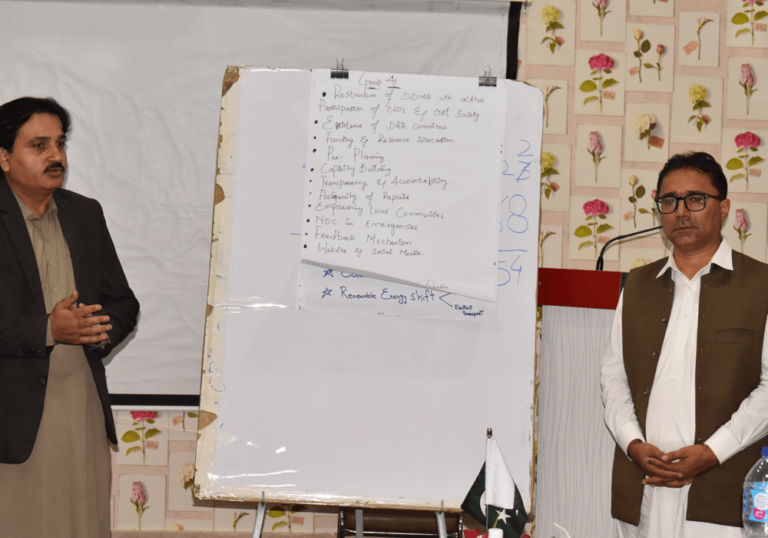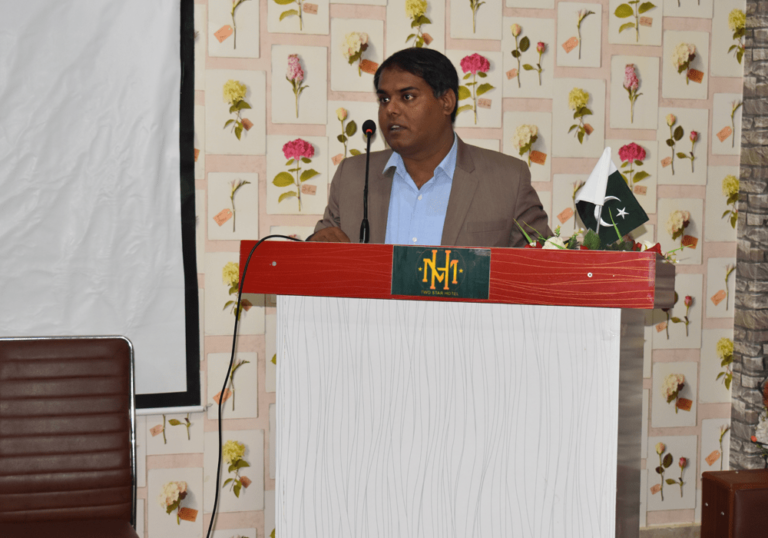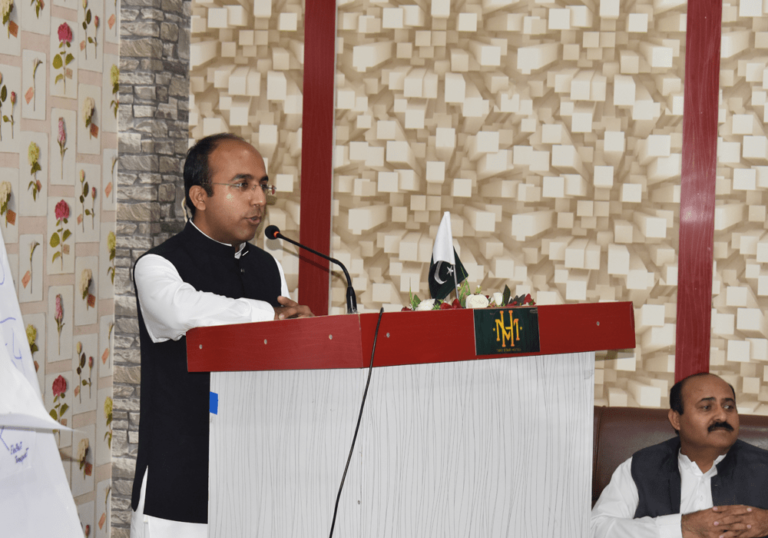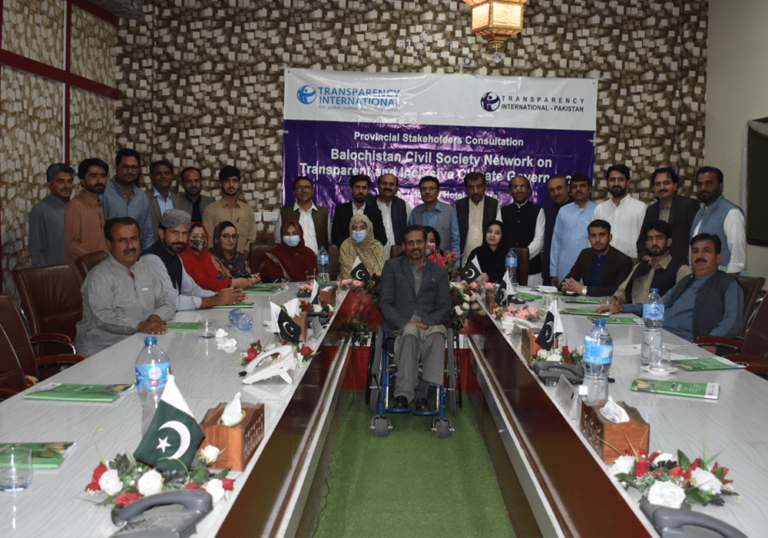- Home
- Provincial Stakeholders Consultation: Balochistan Civil Society Network on Transparent and Inclusive Governance
Provincial Stakeholders Consultation: Balochistan Civil Society Network on Transparent and Inclusive Governance
Provincial Stakeholders Consultation: Balochistan Civil Society Network on Transparent and Inclusive Governance
Venue: Hotel Metro, Quetta, Balochistan
Date: November 02, 2023
Transparency International Pakistan organized Inaugural Stakeholders’ consultative workshop / meeting and established Balochistan Civil Society Network on Transparent & Inclusive Governance on 2nd November 2023 at Hotel Metro, Quetta, Balochistan. Around 38 participants representing Civil Society Organizations (CSOs) working on climate change related issues from district Quetta, Sibi, Bolan, Jaffarabad, Naseerabad, Jhal Magsi, Qilla Saifullah, Pishin, Ziarat, Usta Muhammad, Turbat, Lasbela and Panjgur attended the consultation meeting.
The event formally began with the recitation of the Holy Quran. A round of introduction was held after which Mr. Toufique Wassan, Project Coordinator, Transparency International Pakistan shared the objectives of the consultative meeting.
Mr. Kashif Ali Shaikh, Executive Director, Transparency International Pakistan delivered the opening remarks. He described the organization’s mission and work while highlighting the effects of climate change and the significance of cooperating with marginalized groups such as rural communities, women, young people and civil society organizations through provincial networks.
Afterwards, Mr. Kashif Ali, Executive Director TI Pakistan gave a presentation on Inclusive Decision Making and Integrity Approaches in Climate Finance and the importance of CSO input in at Policy level.
While discussing the corruption in climate finance, he said that honest and efficient procurement to acquire goods and services is central to enabling climate funds to achieve their goals – but spending entails key corruption risks, including collusion among suppliers or with a contracting entity, inflated prices or diversion of funds. He said that a strong financial framework can ensure climate funding is used for intended purposes, keeping monetary flows fully transparent at every level and preventing bribery, embezzlement and fraud.
He said that there is a need to integrate climate change in the Public Financial Management (PFM) system by identifying entry points based on analysis of legal and institutional processes of the existing systems. He also discussed the gaps and entry points in provincial climate change financing framework. He emphasized that appropriate steps must be taken to prevent corruption in climate finance such as:
- Establishment of Provincial Climate Change Coordination Mechanism
- Establishment of Climate Finance Unit
- Establishment of Climate Change Node in Each Line Department
- Ensuring Accountability and Monitoring
- Comprehensive Whistleblower Protection
Mr. Toufique Wassan, Project Coordinator, TI Pakistan briefed the participants on the Balochistan Civil Society Network on Transparent & Inclusive Climate Governance. He briefed that TI Pakistan would use this network to connect with CSOs operating in various districts of Balochistan and would also reach out to public officials, policy experts, and communities to advocate for inclusive climate policies and transparent climate action through the following:
- Stakeholder engagement at grassroot level to participate in policy making process.
- To report the corrupt practices during emergencies and coordinate with relevant authorities to take notice and action.
- To provide free legal advice to the victims and witnesses of corruption.
After a tea break, partner organizations spoke about their districts vulnerability to climate change. Dr. Muhammad Hayat Jamali, Chief Executive Officer, WORDS organization Jaffarabad, highlighted the damages caused by floods 2022. He said that Jaffarabad is plane area of Balochistan and it is affected by floods every year. During flood 2022 most of the mud houses were destroyed and the crops were severely damaged by the flash flooding.
Mr. Naseem Tareen, representative Peace and Sustainable Development (SPSD), district Ziarat highlighted that 2022 floods have caused massive damage to the infrastructure and shared that most of the rehabilitation work has remained uncompleted despite the passage of almost 2 years. Mr. Khalil Roonjha from WANG district Lasbela highlighted that the communities were displaced in the district due to heavy monsoon rains caused by 2022 floods which resulted in destruction of livestock and houses.
During the consultation, the participants also worked in groups to prepare recommendations around “Strengthening Integrity and Inclusiveness in Balochistan’s Draft Climate Change Policy 2023”. Some of the key recommendations revolved around seven integrity pillars of Climate Governance Integrity to ensure climate action is transparent and inclusive. These include:
1. Climate Finance Dashboard
Efforts must be made to include in the draft Balochistan Climate Change Policy 2023 mechanism to set-up an online Dashboard on the website of Provincial Climate Change and Environment Department, P&D or Finance department to provide information of all the climate related funding, grants, expenditure aid flows, allocation procurement and distribution process.
2. Compliance with Balochistan Procurement Rules
The Policy must emphasize to ensure strict compliance with Balochistan Public Procurement Rules, 2014 in emergency response and climate related projects and emphasize on disclosure of information on the provincial PDMA and EPA’s website.
3. Social Accountability
The Policy must emphasize on use of social accountability tools such as public consultations, public hearings, open budgeting and / or public surveys to ensure transparency in climate finance.
4. Whistleblower Protection
The Government of Balochistan has not enacted Whistleblower Protection Act which protects and defends those who report environmental corruption. The policy must emphasize on establishing Complaint Hotline at Chief Minister Secretariat where complaints can be reported to a toll-free telephone number, web, email and fax or by mail, and handled effectively to enhance the efforts to prevent corruption and to make climate action more effective.
5. Prevention of Conflict of Interest
The policy must include a mechanism on Prevention of Conflict of Interest to ensure integrity for climate finance and projects.
6. Community-led Monitoring
Establish a Community-Based Monitoring and Evaluation (CBM&E) mechanism to engage communities in the monitoring and evaluation of projects, ensuring that outcomes align with their expectations and needs.
7. Annual Social Audit of Climate-related Projects in the Province
A mandatory annual practice must be enforced in the Policy for Social Audit of all the climate related projects. The purpose is to ensure that a regular and systematic assessment of the social, environmental, and ethical aspects of climate-related projects is conducted, promoting transparency, accountability, and adherence to social responsibility standards on an ongoing basis.
TI Pakistan will compile detailed recommendations to advocate with the provincial government and international donor agencies to ensure that the climate policies in Balochistan are inclusive and climate action is transparent.
At the end, Mr. Tofique Wassan, Project Coordinator TI Pakistan gave concluding remarks and appreciated the civil society organizations for joining and sharing their valuable inputs towards improving provincial climate governance framework in Balochistan. The participants lauded the efforts of Transparency International Pakistan in highlighting the nexus of climate and corruption is building collective approach for advocacy through inclusion of civil society actors in the province.


